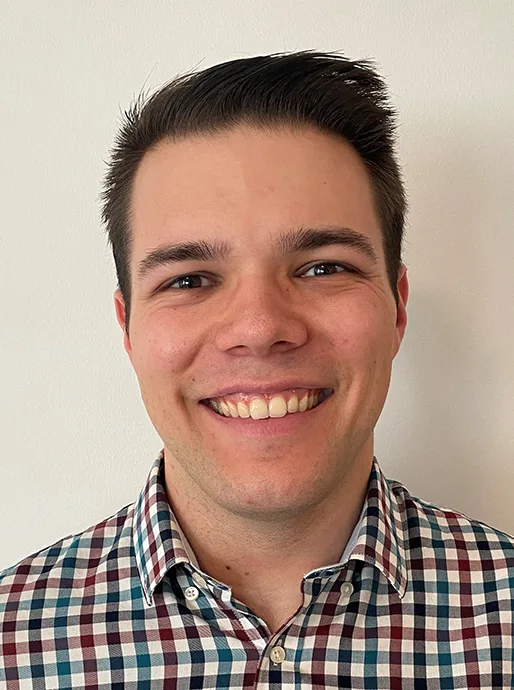Dakota Pritchard currently work as a graduate trainee in the Scandinavian office of AbbVie, a global biopharmaceutical company.
His job is part of a 2-year leadership development program, intended for recent graduates with backgrounds that are well-suited to the pharmaceutical industry.
– In this position, I will work in four different departments, for six months each. I will work with everything from Health Technology Assessment applications and pricing strategy, to business analytics, sales, and marketing, Pritchard says.
– I use knowledge from the masterprogram in Health Economics, Policy and Management every day, and I would not have gotten this job without it. Because health economics plays such a key role in getting medications on the market in Norway, knowledge we gain from our master’s program is in high demand.
What is demanded in order to work in this field?
– The pharmaceutical industry is ever-changing, so you need to be flexible and adaptable in order to succeed. You should enjoy working with others across disciplines, as that is the key to success in the industry, Pritchard explains.
– It can also be helpful to have some sort of life science or medical background, though someone from the master’s program without this type of background can make up for this with a strong willingness to learn.
How did you get the job?
– I found the job through LinkedIn, though first heard about AbbVie through an event hosted by the master's program. The recruitment process for my position was very competitive, with applicants from all over Scandinavia competing for two positions. I went through several interviews, including a case interview with the general manager of AbbVie Scandinavia, as well as other members of the leadership team.
Dakota Pritchard would recommend AbbVie’s graduate program to people who have a goal of being in the pharmaceutical industry long-term.
– The graduate program is also a leadership development program, so it fits very well if you have ambitions of being in a leadership role in the future. For the graduate program specifically, it is desired that you have double qualifications, such as a degree in medicine or life science and a degree in health economics. However, there are definitely opportunities in the pharmaceutical sector for anyone who has taken our master’s program, he says.
What do you like best about this profession?
– The best part about my position as a graduate trainee at AbbVie is getting to learn about the pharmaceutical industry from many different angles from my friendly and talented colleagues from all over Scandinavia. I personally think the pharmaceutical industry is a fun and fast-paced sector, where a student from our master’s program can put much of what they have learned into practice and create value.
What other opportunities are there within the profession?
– It is most common for individuals from our master’s program that go into the pharmaceutical industry to work within Market Access, External Affairs, and Governmental Affairs. However, individuals with a degree from our program can also be a good fit for sales and marketing roles.
What are the chances of getting a job in this profession?
– It is challenging to break into the pharmaceutical sector in Norway. There are not many positions, and there is a lot of competition for the positions that exist. If you think the pharmaceutical industry sounds like something for you, I recommend trying to get experience from the industry as quickly as possible, for example through part-time jobs or the master program’s internship course.
Also, if you are like me and come from outside of Norway, start learning the language as soon as possible! It will only help you!
Dakota Pritchard
- Year of graduation: 2021
- Position/ Occupation: Graduate Trainee
- Employer: AbbVie Scandinavia
